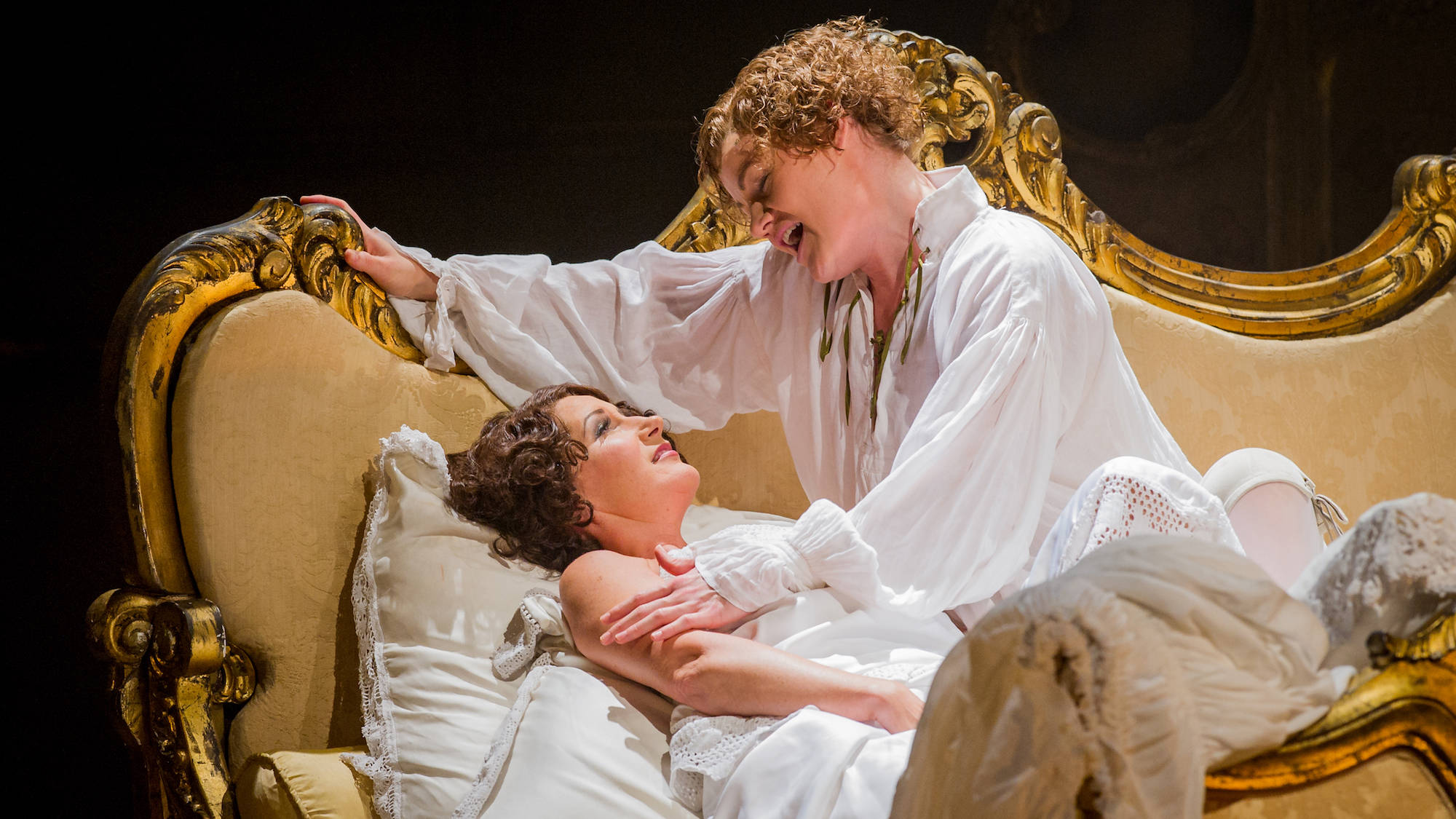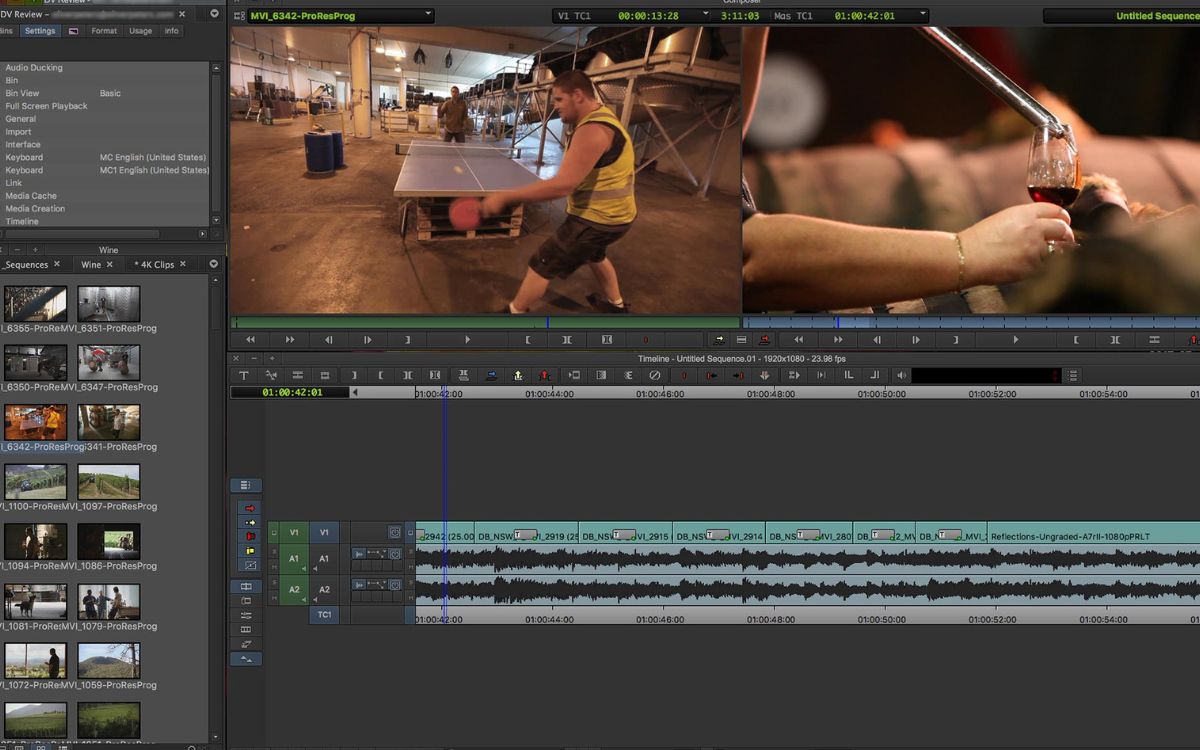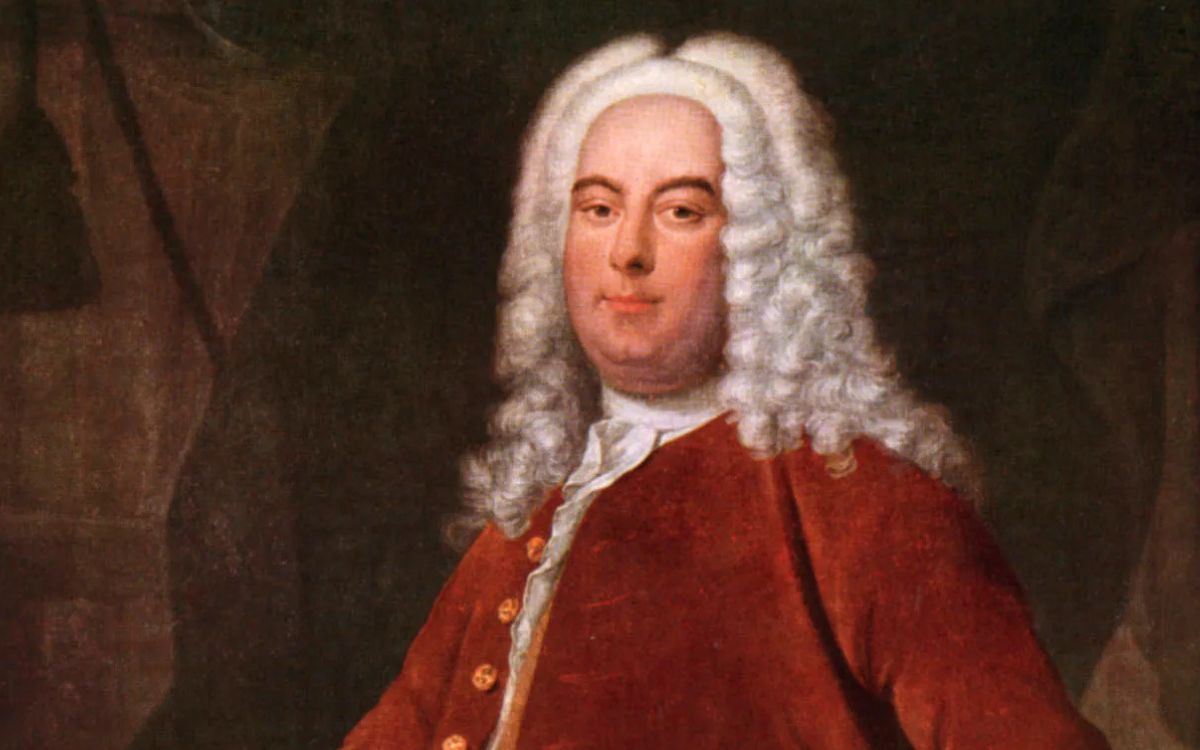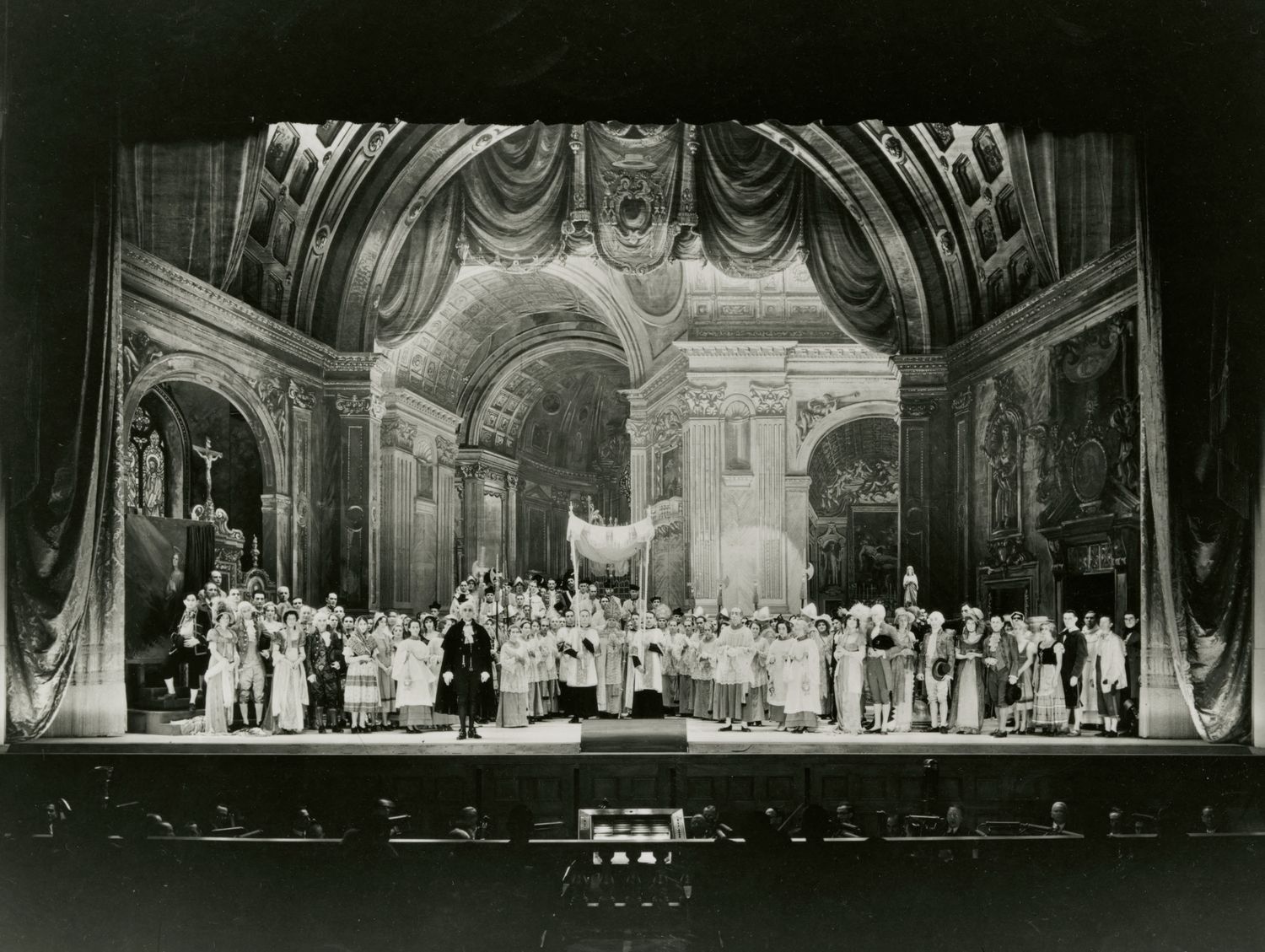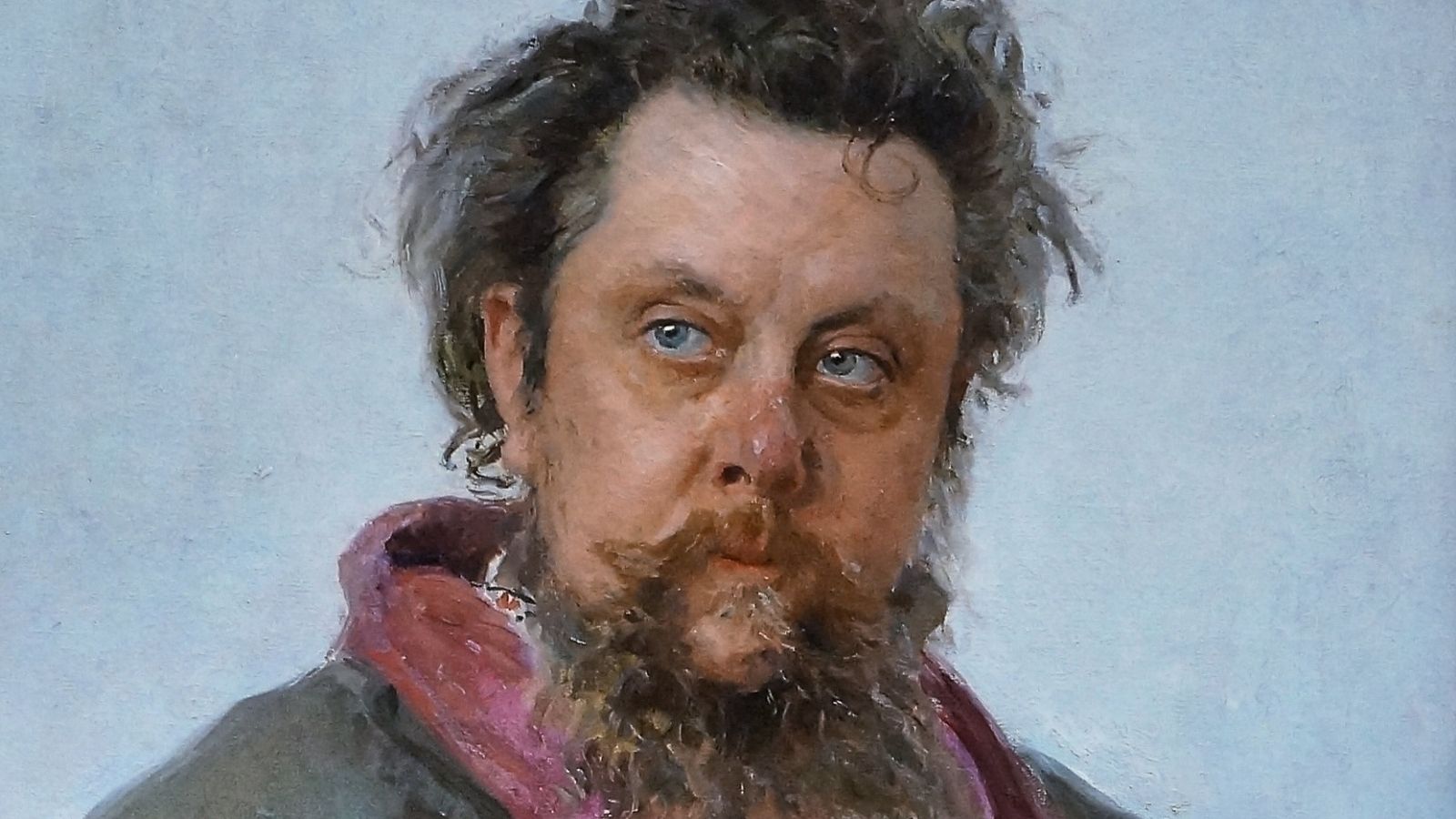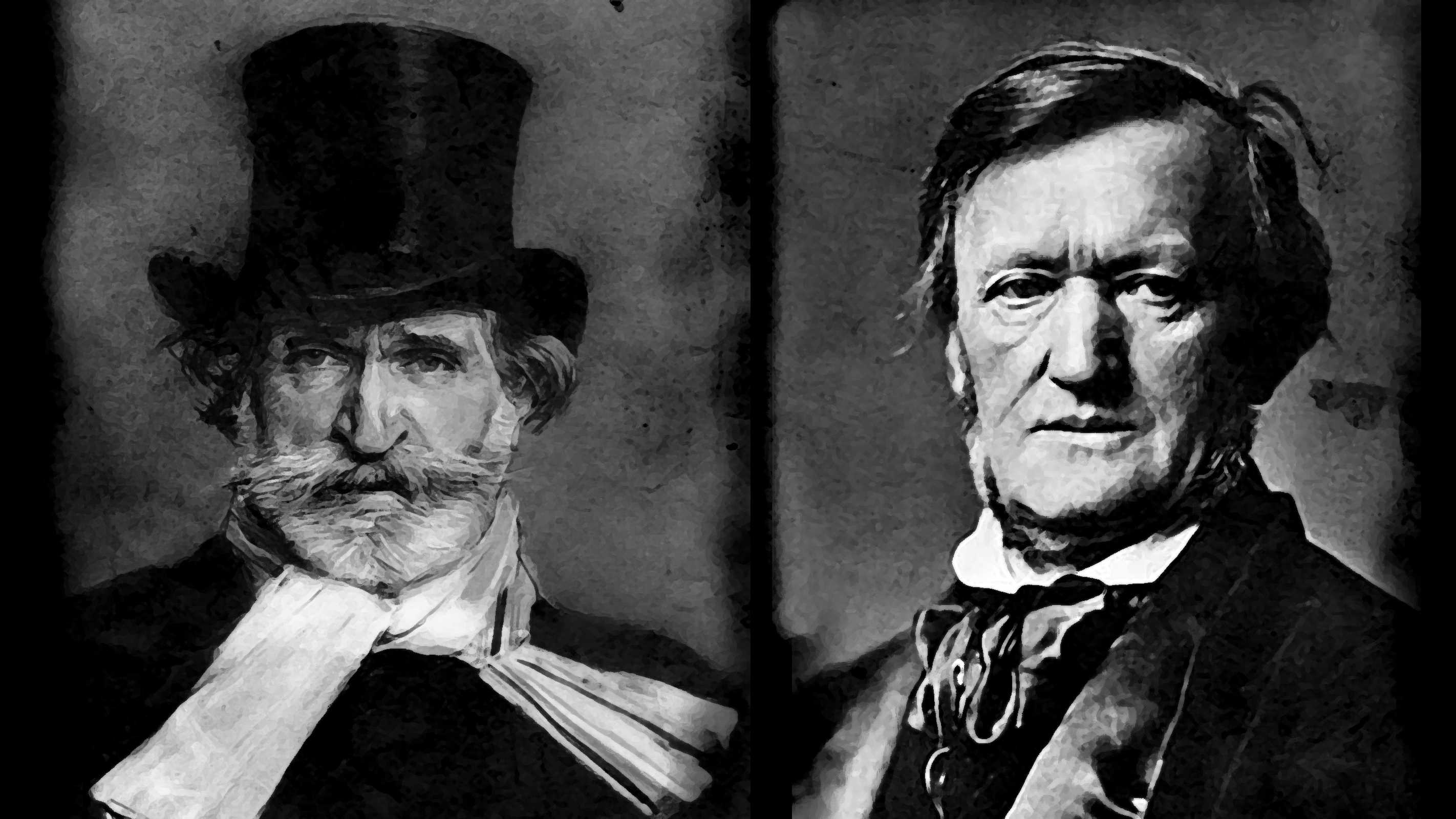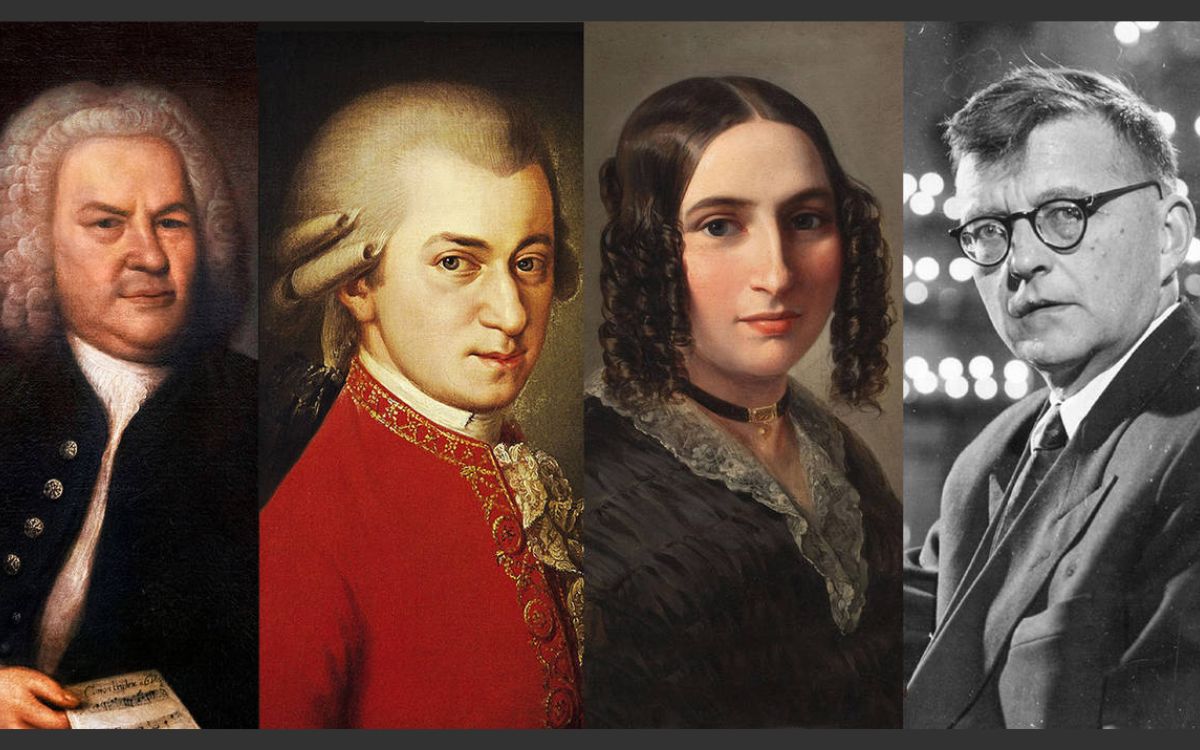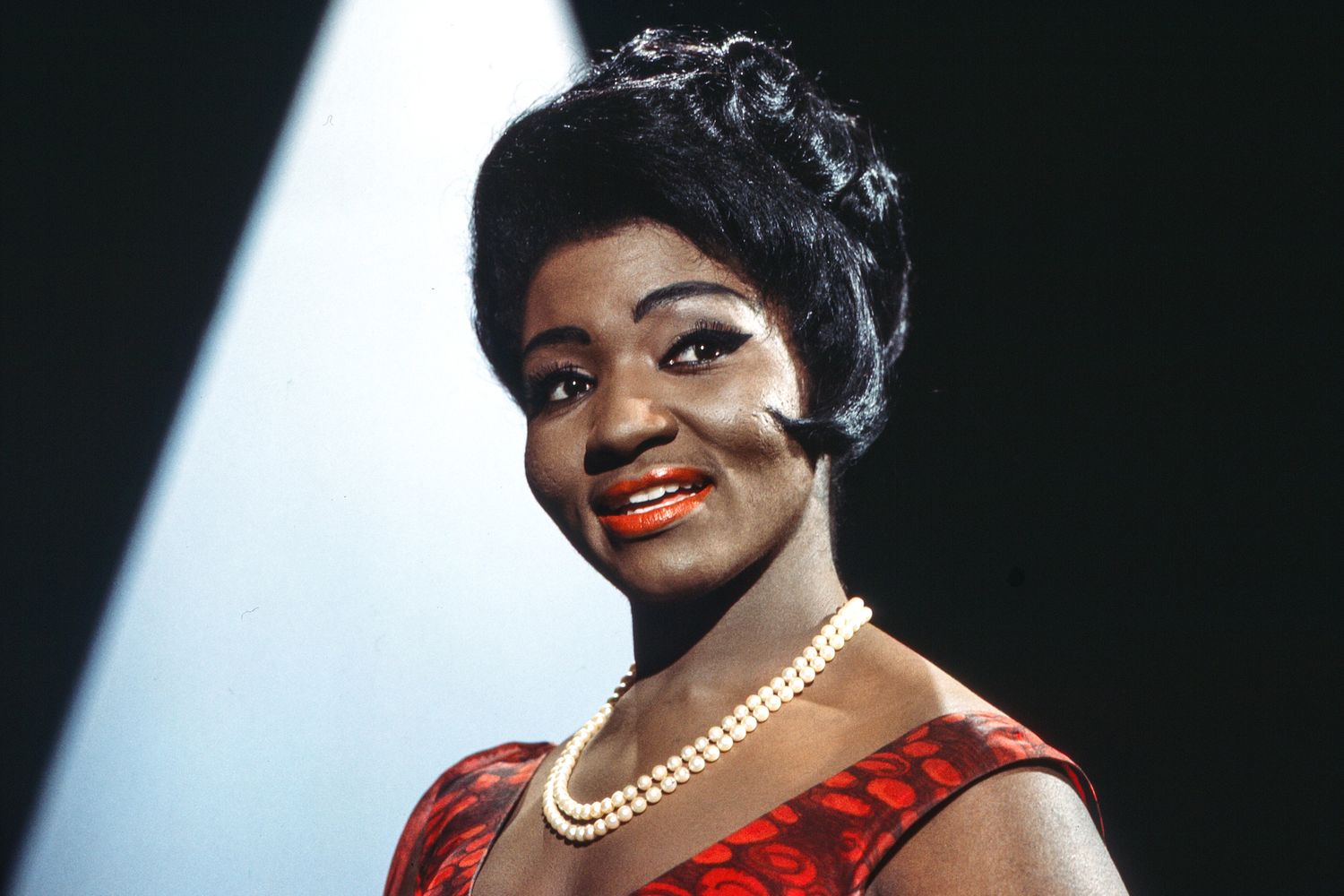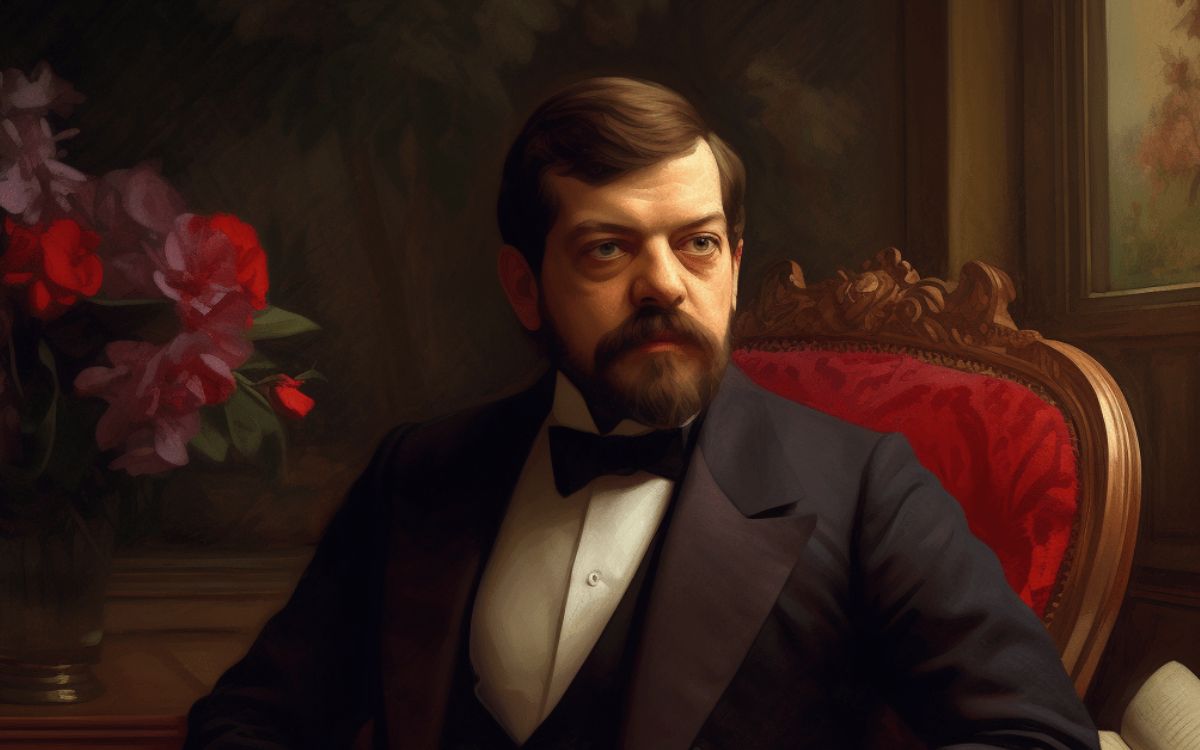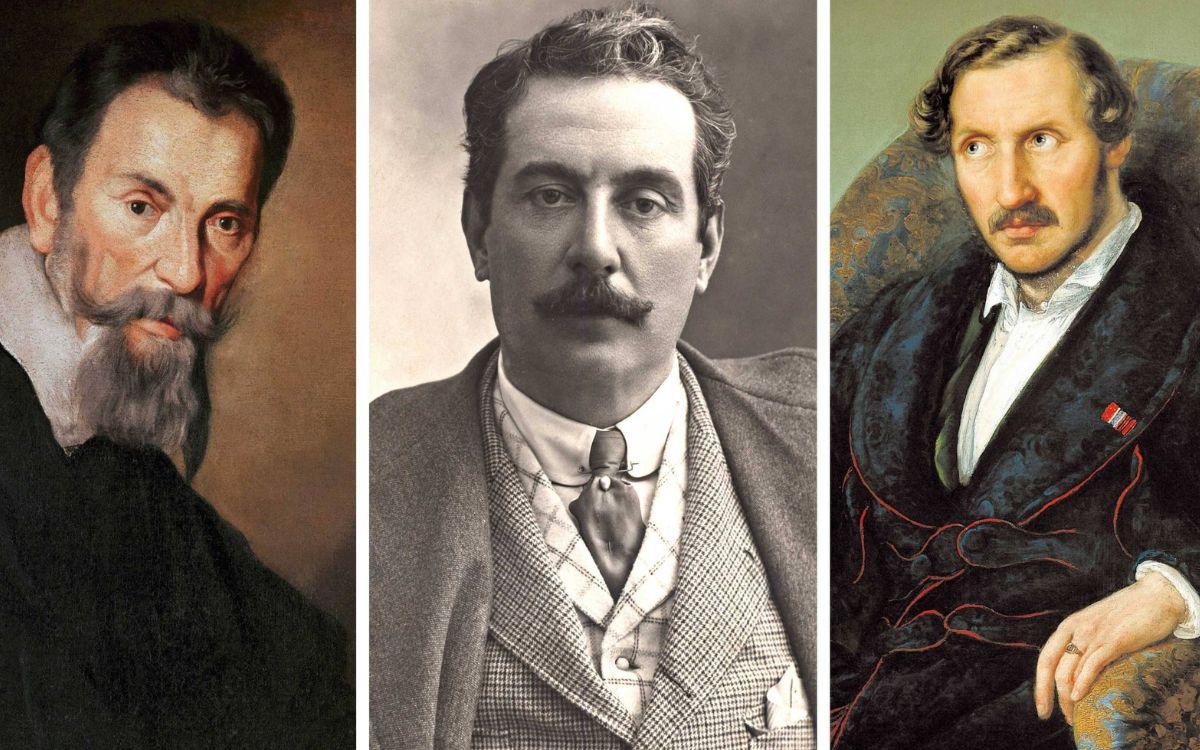Home>Events & Info>Opera>Who Was The First Great Composer Of Opera
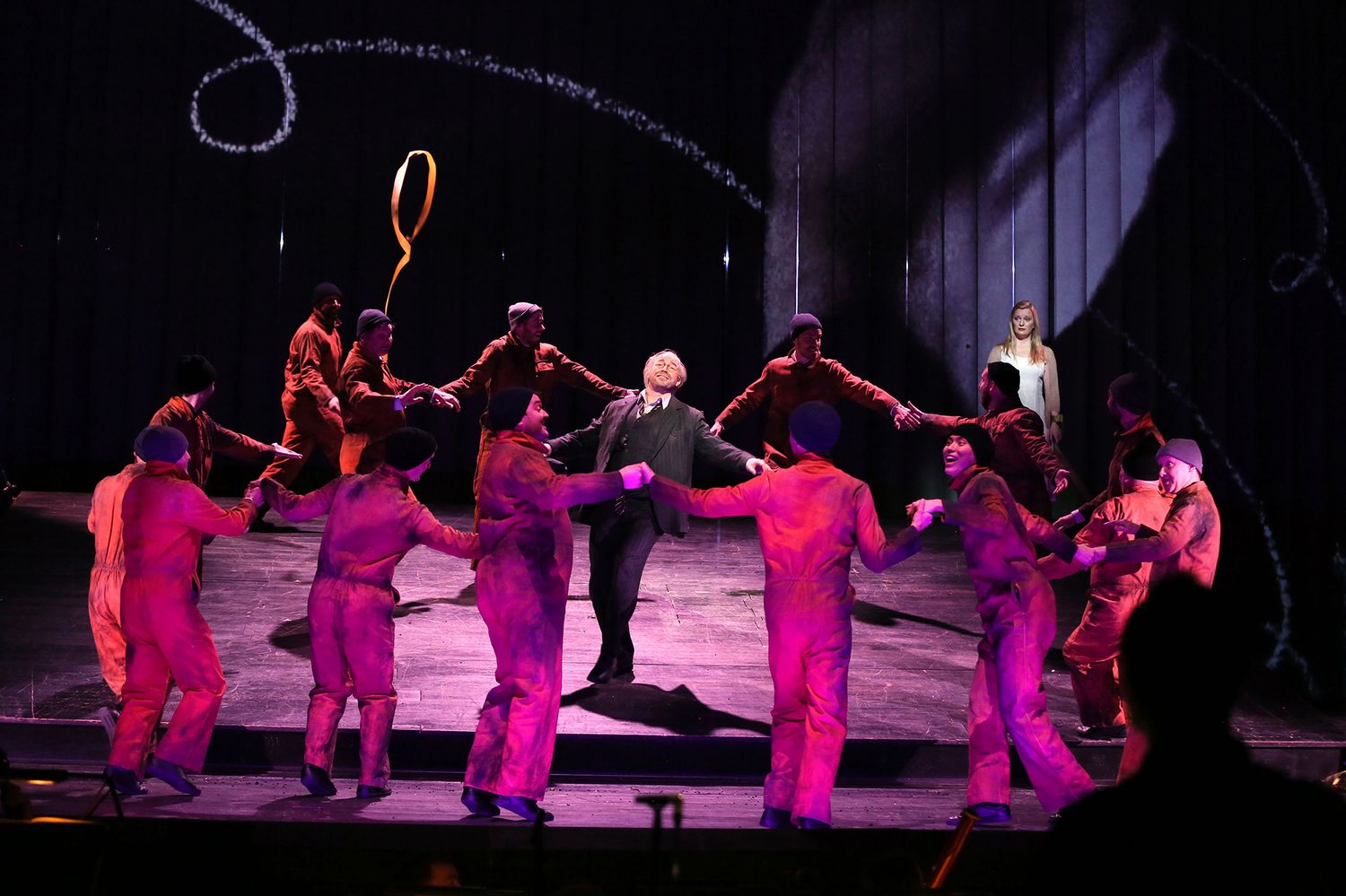

Opera
Who Was The First Great Composer Of Opera
Modified: January 22, 2024
Discover the first great composer of opera and explore the origins of this captivating art form. Uncover the revolutionary role of opera in shaping the world of music.
(Many of the links in this article redirect to a specific reviewed product. Your purchase of these products through affiliate links helps to generate commission for AudioLover.com, at no extra cost. Learn more)
Table of Contents
Introduction
Opera, a magnificent art form that combines music, theater, and storytelling, has captivated audiences for centuries. Its grandeur, emotive power, and sheer beauty make it a unique and timeless art form. But have you ever wondered who was the first great composer of opera?
To understand the origins of opera, we have to venture back in time to the late 16th century in Italy. Opera emerged as a distinct art form during this period, blending elements of Greek drama, music, and Renaissance theatrical traditions.
This article aims to delve into the early origins of opera, explore the birth of the operatic genre, and ultimately reveal the first great composer of opera: Claudio Monteverdi.
Monteverdi, an Italian composer, was a pioneer in the development of opera. He made significant contributions to the genre, pushing its boundaries and laying the foundation for future composers.
Join us on a journey through time as we unravel the life, works, and legacy of Claudio Monteverdi, the trailblazer who shaped the course of opera forever.
Early Origins of Opera
The roots of opera can be traced back to the Renaissance era in Italy. During this time, there was a growing interest in reviving ancient Greek drama, which involved a combination of music, poetry, and acting. Scholars and artists were fascinated by the idea of recreating Greek tragedies and adding musical elements to enhance the emotional impact.
It was in this fertile ground that opera started to take shape. The Florentine Camerata, a group of intellectuals and musicians, played a crucial role in the development of opera. They believed that the music of Greek dramas was sung, rather than spoken, and sought to recreate this practice.
One key figure in the early origins of opera was Jacopo Peri, an Italian composer, who is often regarded as one of the first opera composers. His work, “Dafne,” which premiered in 1597, is considered the earliest surviving opera. “Dafne” featured a libretto, or text, written by Ottavio Rinuccini and was performed with a small ensemble of instruments.
As the popularity of opera grew, more composers and librettists began experimenting with the form. The use of recitative, a style of singing that imitates speech, became a defining characteristic of early opera. Composers such as Giulio Caccini and Claudio Monteverdi further developed this style, paving the way for the future of the genre.
It is important to note that these early operas were often performed in courtly and aristocratic circles, with limited accessibility to the general public. However, as opera gained prominence and popularity, it began to be performed in public theaters, allowing a wider audience to experience this unique art form.
The early origins of opera laid the groundwork for what would become a rich and diverse art form. The combination of music, drama, and spectacle created a powerful medium for storytelling and emotional expression, captivating audiences and establishing opera as a significant cultural phenomenon.
The Birth of Opera as an Art Form
The birth of opera as an art form marked a significant turning point in the history of music and theater. It was a time of experimentation, creativity, and the merging of different artistic disciplines.
One of the key developments in the birth of opera was the establishment of public opera houses. These venues, such as the San Cassiano Theater in Venice, provided a dedicated space for the performance of operas, allowing for larger audiences and a greater accessibility to this emerging art form.
Opera as an art form began to flourish during the Baroque period, with composers like Monteverdi and Alessandro Scarlatti pushing the boundaries of musical expression. The music became more complex, with ornate vocal melodies and intricate instrumental accompaniments.
One aspect that distinguished opera from other forms of entertainment at the time was its combination of music, drama, and staging. Elaborate sets, costumes, and theatrical effects were used to enhance the storytelling and create a captivating visual experience for the audience.
Librettos, or the texts of operas, played a crucial role in the birth of opera. They became more elaborate and sophisticated, often drawing inspiration from ancient mythology, historical events, or popular plays. The librettos provided composers with a foundation on which they could create music that complemented the emotions and narrative of the story.
As opera continued to evolve, different styles and genres emerged. For example, the opera seria focused on serious and tragic themes, while the opera buffa showcased comedic and lighthearted subjects. This diversity allowed for a range of emotions and a wider appeal.
Overall, the birth of opera as an art form was a result of the convergence of various influences and artistic disciplines. It brought together music, theater, poetry, and visual spectacle to create a unique and immersive experience for audiences. This groundbreaking art form paved the way for future composers to explore and innovate, leaving a lasting impact on the world of music and culture.
Claudio Monteverdi: Pioneering the Operatic Genre
When discussing the first great composer of opera, one name stands out: Claudio Monteverdi. Born in Cremona, Italy, in 1567, Monteverdi is widely recognized as a pioneer in the development of opera, making significant contributions to the art form and shaping its trajectory for future generations.
Monteverdi’s musical career spanned the transition from the late Renaissance to the early Baroque period, and his experimentation and innovation played a crucial role in the establishment of opera as a distinct genre.
One of Monteverdi’s key contributions was his incorporation of recitative, a style of singing that imitates speech, into his operas. This technique allowed for a more natural and expressive way of delivering the text, enhancing the dramatic impact of the storytelling. Monteverdi understood the power of combining music and words to create emotional depth and realism on stage.
Monteverdi’s early works displayed his command of the madrigal, a popular secular vocal form of the time. His compositions were deeply expressive and pushed the boundaries of traditional musical conventions. It is through his experimentation with the madrigal that Monteverdi started to explore the possibilities of combining music and drama.
In 1607, Monteverdi composed his most famous opera, “L’Orfeo.” This groundbreaking work is considered one of the earliest operas still performed today. “L’Orfeo” recounts the mythological story of Orpheus, the musician who descends into the underworld to rescue his beloved Euridice.
“L’Orfeo” showcased Monteverdi’s mastery of the operatic form. The opera incorporated a variety of musical styles, ranging from expressive arias to lively dances and choruses, creating a dynamic and engaging experience for the audience. The emotional depth of the characters, the powerful melodies, and the dramatic intensity made “L’Orfeo” a resounding success.
Monteverdi continued to compose operas throughout his career, further refining the art form. His works, such as “Il ritorno d’Ulisse in patria” and “L’incoronazione di Poppea,” explored themes of love, passion, and political intrigue.
Ultimately, Claudio Monteverdi’s pioneering spirit and vision laid the foundations for the operatic genre as we know it today. His daring compositions, innovative use of music and drama, and ability to evoke deep emotions through his work continue to inspire composers and performers around the world. Monteverdi’s legacy in opera is immeasurable, and his contributions have left an indelible mark on the history of music.
Monteverdi’s Early Works and Influence
Before Monteverdi made his mark as the pioneer of opera, he had already established himself as a talented composer through his early works. These compositions not only showcased his innovative musical style but also laid the groundwork for his future influence on the development of opera.
One of Monteverdi’s notable contributions during his early career was his experimentation with the madrigal form. Madrigals were secular vocal compositions popular during the Renaissance, typically set to poetry. Monteverdi’s madrigals stood out due to their expressive and dramatic qualities, blending rich harmonic progressions with vivid word-painting.
Monteverdi’s First Book of Madrigals, published in 1587, introduced his unique approach to the genre. These compositions showcased his mastery of combining music and text, using dissonance and unexpected harmonic shifts to convey emotional intensity.
One of Monteverdi’s most famous madrigals from this collection is “Cruda Amarilli,” which exemplifies his daring harmonic language and expressive writing. These early works were a testament to Monteverdi’s ability to capture and evoke deep emotions through music.
Monteverdi’s influence extended beyond his own compositions. As a renowned teacher and music director in Mantua and later in Venice, he mentored a generation of young composers who would go on to shape the future of music. He helped popularize the seconda pratica, a new approach to composition that prioritized the expression of emotions over conventional rules of counterpoint.
Monteverdi’s ideas and techniques were documented in his famous treatise “L’Orfeo,” published in 1609. This influential text outlined his beliefs on the role of music, the relationship between music and words, and the principles of compositional practice. It served as a guide for aspiring composers to explore and develop their own artistic voices.
Monteverdi’s impact on the operatic genre cannot be overstated. His innovative use of recitative and expressive melodies, combined with his ability to create deeply emotional and engaging narratives, opened up new possibilities for composers in the years to come.
Composers such as Francesco Cavalli and Jean-Baptiste Lully were directly influenced by Monteverdi’s works and built upon his foundations. Monteverdi’s forward-thinking approach paved the way for the development of opera as a fully-fledged art form, with its own distinct musical and dramatic conventions.
Monteverdi’s early works and his lasting influence on subsequent generations cemented his legacy as one of the most significant figures in the history of music. His daring and inventive compositions continue to inspire and captivate audiences to this day, illustrating the enduring impact of his contributions to the world of music and opera.
Monteverdi’s Masterpiece: L’Orfeo
Among Claudio Monteverdi’s many notable works, one stands out as his masterpiece: “L’Orfeo.” Premiered in 1607, this groundbreaking opera marked a turning point in the history of the genre and solidified Monteverdi’s reputation as a visionary composer.
“L’Orfeo” tells the mythical story of Orpheus, the legendary musician who descends into the underworld in an attempt to bring back his beloved Eurydice. It is a tale of love, loss, and the power of music to move even the gods.
One of the remarkable aspects of “L’Orfeo” is Monteverdi’s skillful integration of music and drama. The opera features a varied combination of musical styles, including dramatic recitative, lyrical arias, lively dances, and grand choral passages. This diverse range of musical expressions allows for a dynamic and emotionally rich experience.
The opening of “L’Orfeo” immediately captivates the audience with its powerful prologue, setting the stage for the tragic tale to come. Throughout the opera, Monteverdi’s music beautifully captures the emotions of the characters, from Orpheus’s grief-stricken lament to the joyous celebration of his triumphant return from the underworld.
One of the most iconic moments in “L’Orfeo” is Orpheus’s poignant aria, “Possente spirto,” in which he pleads with the god of the underworld to release Eurydice. This aria showcases Monteverdi’s ability to evoke profound emotions through his music, with a haunting melodic line and an intricate interplay between the voice and the accompanying instruments.
In addition to its musical brilliance, “L’Orfeo” was also innovative in its staging and use of theatrical effects. Monteverdi employed elaborate sets, stunning costumes, and dramatic lighting to create a visually captivating experience. This integration of visual and auditory elements elevated the opera to new heights and set a precedent for the future of theatrical productions.
“L’Orfeo” was an instant success and quickly gained popularity throughout Italy and beyond. Its influence can be seen in the subsequent development of the operatic genre, as composers and librettists sought to recreate the magic and emotional depth found in Monteverdi’s masterpiece.
To this day, “L’Orfeo” remains a beloved and frequently performed opera, showcasing Monteverdi’s unrivaled ability to blend music and drama into a seamless and moving experience. Its enduring legacy speaks to the groundbreaking nature of Monteverdi’s composition and solidifies his place as a true master of the operatic art form.
Legacy and Impact of Claudio Monteverdi
The legacy of Claudio Monteverdi, the first great composer of opera, is far-reaching and profound. His innovative approach to music and his contributions to the operatic genre continue to shape the world of music to this day.
Monteverdi’s impact can be seen in several key aspects. Firstly, his incorporation of recitative as a means of storytelling revolutionized the way music was used in opera. By imitating speech patterns and allowing for a more natural delivery of the text, Monteverdi elevated the dramatic power of the genre.
Moreover, Monteverdi’s exploration of the expressive capabilities of music set the stage for future composers. He pushed the boundaries of traditional musical conventions, employing dissonances and unexpected harmonic progressions that conveyed deep emotions and added depth to his compositions.
Monteverdi’s influence extended beyond his own compositions. His treatises, such as “L’Orfeo” and “Il combattimento di Tancredi e Clorinda,” provided valuable insights into his compositional approach and served as guides for aspiring musicians.
Perhaps one of Monteverdi’s greatest legacies is his impact on subsequent generations of composers. His works inspired a new generation of musicians, laying the foundation for the development of opera as a fully-fledged art form. Composers such as Alessandro Scarlatti, Jean-Baptiste Lully, and Henry Purcell built upon his ideas and expanded the possibilities of operatic storytelling.
Furthermore, Monteverdi’s exploration of emotional depth and his ability to evoke powerful emotions paved the way for the rise of the Baroque period, characterized by its dramatic expression and emphasis on the individual’s emotions.
Monteverdi’s contributions also extended to the realm of vocal music. His compositions for solo voice, particularly his madrigals, brought a new level of expressiveness and complexity to the genre. His works exemplify the close relationship between music and text, emphasizing the importance of delivering the full emotional impact of the lyrics.
Even today, Monteverdi’s music continues to be performed and celebrated worldwide. His operas, such as “L’Orfeo,” “Il ritorno d’Ulisse in patria,” and “L’incoronazione di Poppea,” are staples of the opera repertoire, and his sacred works, including the “Vespers of 1610,” are revered for their exquisite beauty and profound spirituality.
Claudio Monteverdi’s legacy as the first great composer of opera is irrefutable. His pioneering spirit and innovative compositions shaped the future of music, and his influence can be felt in the works of countless composers who followed in his footsteps. Monteverdi’s legacy continues to inspire and captivate audiences, reminding us of the enduring power and beauty of his music.
Conclusion
Claudio Monteverdi’s role as the first great composer of opera is unquestionably significant. His innovative ideas, progressive compositional techniques, and enduring works continue to influence the world of music and opera to this day.
Through his exploration of recitative and his ability to combine music and drama, Monteverdi laid the foundation for the operatic genre, shaping its trajectory for future generations. His masterpiece, “L’Orfeo,” exemplifies his genius, with its emotional depth, exquisite melodies, and groundbreaking use of staging.
Monteverdi’s contributions extended beyond his own compositions. His treatises provided valuable insights into his artistic vision and served as guides for aspiring musicians and composers. His emphasis on the expressive power of music and his challenge to traditional musical conventions revolutionized the way composers approached their art.
Monteverdi’s influence can be seen in the works of subsequent composers, who built upon his ideas and expanded the possibilities of operatic storytelling. His impact extended to vocal music as well, with his madrigals and sacred works exemplifying his ability to create deeply expressive and immersive experiences.
The legacy of Claudio Monteverdi endures in the performances and appreciation of his music. His operas continue to be celebrated and performed worldwide, captivating audiences with their timeless beauty and emotional resonance. Monteverdi’s pioneering spirit and visionary approach laid the groundwork for the development of opera as a distinct art form and continues to shape the way we perceive and experience music.
As we reflect on the first great composer of opera, we cannot overlook the immense impact of Claudio Monteverdi. His musical contributions have left an indelible mark on the history of music, and his legacy continues to inspire generations of musicians, composers, and opera lovers around the world.

